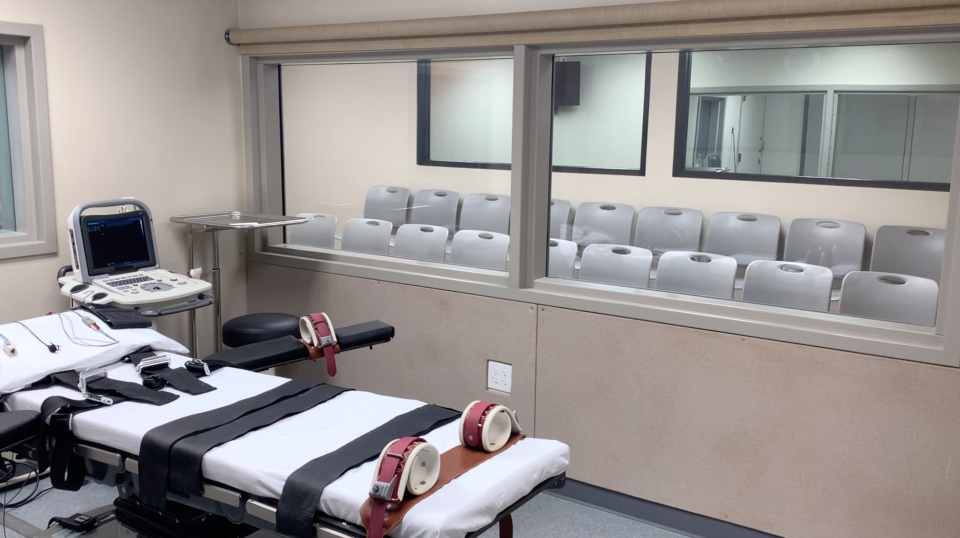Oklahoma death row inmates lose on appeal in challenge to execution protocol
A federal appeals court on Wednesday upheld a judge's ruling that Oklahoma's execution protocol is constitutional.
The decision comes a day before the next lethal injection is set to be carried out at the Oklahoma State Penitentiary in McAlester. A convicted baby killer, Benjamin Cole, is scheduled to be executed at 10 a.m. Thursday.
Death row inmates raised complaints about the execution protocol in a lawsuit filed in Oklahoma City federal court in 2014. U.S. District Judge Stephen Friot rejected those complaints in rulings in 2020, 2021 and June.
On appeal, the 28 inmates still in the case dropped their chief complaint that the first drug, the sedative midazolam, is ineffective and would expose them to excruciating pain as the execution proceeds.
Instead, they said the protocol prevents their attorneys from going to court or to the governor for a reprieve if last-minute issues occur. "The problems that arose during prior Oklahoma executions are commonplace, not isolated incidents," the inmates' attorneys told the 10th U.S. Circuit Court of Appeals in Denver.

Under the protocol, visitation between an inmate and his attorneys must conclude "two hours prior to the scheduled execution or earlier if necessary to begin preparing the inmate for the execution." Attorneys are allowed to watch the execution from a witness room but cannot bring cellphones.
Attorneys asked the appeals court to block "any and all future executions until Oklahoma revises its Protocol so as to no longer violate prisoners' rights to access to counsel and the courts."
In its decision Wednesday, the appeals court found "Oklahoma's earlier problems are not enough to show that future similar problems are imminent, much less problems rising to an Eighth Amendment violation."
The Eighth Amendment reference is to the prohibition against cruel and unusual punishment. "In short, plaintiffs have not carried their burden to show they face an imminent injury-in-fact as their respective executions are carried out," the appeals court said.
The decision Wednesday was by a three-judge panel. The inmates can seek a review by the full court.
Attorney General John O'Connor thanked the appeals court "on behalf of the numerous families whose lives were irrevocably altered by heinous murders of loved ones" for the timely decision.
The focus of the lawsuit had been on midazolam, the first of the three drugs administered during a lethal injection. It is followed by a paralytic and then the heart-stopping drug potassium chloride.
Friot heard conflicting testimony about the sedative's effectiveness over a six-day trial in Oklahoma City federal court earlier this year. The judge concluded it was highly probable that an inmate will feel no pain "within a very short time after the midazolam is pushed and will remain in that condition until injection of the three drugs causes death."
"The evidence persuades the court, and not by a small margin, that even though midazolam is not the drug of choice for maintaining prolonged deep anesthesia, it can be relied upon, as used in the Oklahoma execution protocol, to render the inmate insensate to pain for the few minutes required to complete the execution," he wrote in his 43-page ruling.
The Oklahoma Court of Criminal Appeals set execution dates for 25 of the 28 inmates in the lawsuit after that ruling on midazolam. One of those inmates, James Coddington, was executed in August.
Cole, 57, is facing execution for the murder of his baby daughter on Dec. 20, 2002, at their home in Claremore. The victim, Brianna Cole, was almost 9 months old.
His attorneys contend he has become mentally ill and is no longer eligible to be executed. The U.S. Supreme Court on Wednesday rejected their request for a stay of execution.
This article originally appeared on Oklahoman: Federal appeals court rules Oklahoma execution protocol constitutional

